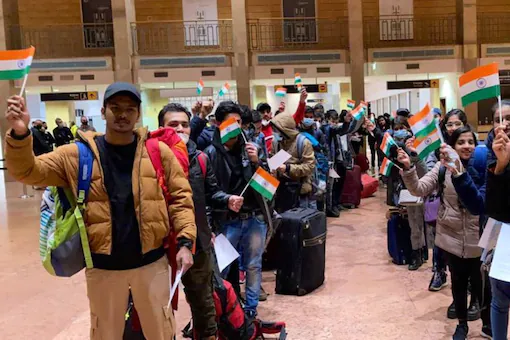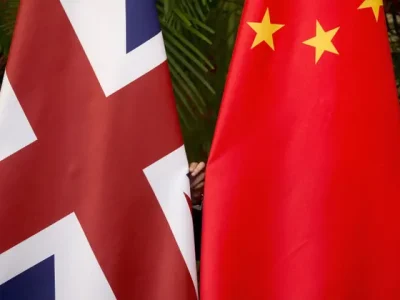The efforts of the United States, China, the United Kingdom, Germany and several other nations, pale in comparison with the proactive and earnest efforts of Indian authorities who are currently running the evacuation programme, Operation Ganga, in full swing to bring back Indian students from different parts of Ukraine.
Russia’s invasion of Ukraine has left many foreigners stranded in a besieged country. The forces of Ukraine and Russia are engaged in intense fighting in parts of the north, south and east of Ukraine. Meanwhile, thousands of Indian citizens in Ukraine, most of whom are medical students are looking for a way out, while their families in India appeal for their safe evacuation and return to India. The Indian government has committed to the task and most recently, it has sent four ministers to countries neighbouring Ukraine, who are expected to coordinate with Ukrainian authorities and those of neighbouring nations to ensure the return of Indian students.

The UK has relocated its embassy from Kyiv to Lviv, a city just 80 kilometres from the Polish border and stated explicitly that British Nationals should not expect increased consular support or help with evacuating in these circumstances. “Russia’s military action in Ukraine will severely affect the British Government’s ability to provide consular assistance in Ukraine.” Instead, Britain has asked its nationals to follow the advice of Ukrainian authorities.
Meanwhile, Germany has shut down its embassy in Ukraine and stated that “an evacuation by German authorities is currently not possible.” African students from Morocco, Nigeria, Egypt and more, are also stranded and seeking help from their countries.
Compare this with the Indian effort— India’s embassy is still functional in Kyiv. Indian authorities have released phone numbers and launched other modes of contact where stranded Indian students can reach out and coordinate with Indian officials. Indian Ministry of External Affairs spokesperson Arindam Bagchi, on Monday, said that out of the nearly 20,000 Indian students, over 1400 have been evacuated so far, while nearly 8000 had heeded the travel advisories and exited the country before the invasion began. India’s first travel advisory urging citizens to leave Ukraine was issued on February 15th, nine days before Russia’s military advance into the Eastern European country.
While it has been difficult to ensure the seamless movement of citizens from the eastern parts of Ukraine to the western borders, Indian officials are coordinating efforts with Ukrainian authorities to run special trains amid intense fighting. At the border, stranded foreigners are facing long waiting periods amid sub-zero temperatures, and the Indian nationals have been advised to not travel directly to the border checkpoints without coordinating with Indian authorities. Once out of Ukraine, however, the Indian students are safely flying back to India, and the flight expenses are being covered by the Indian government.
Reports of racial profiling and violence towards non-white students at the hands of Ukrainian border guards have further made the use of diplomacy important. Four Indian ministers shall press the effort further from neighbouring countries. Jyotiraditya Scindia is tasked with coordinating OpGanga efforts from Romania and Moldova. Kiren Rijiju has been assigned to handle matters through Slovakia. Hardeep Puri will head to Hungary and General VK Singh will be managing the evacuation plan from Poland. Prime Minister Modi, meanwhile, has raised the matter of the safety of Indian students with Russian President Putin and Ukrainian President Zelenskyy. Two countries are at war and major powers of the world are facing limitations in evacuating their citizens, but it is clear that the Indian government is leaving no stone unturned to bring Operation Ganga to fruition.
![]()





